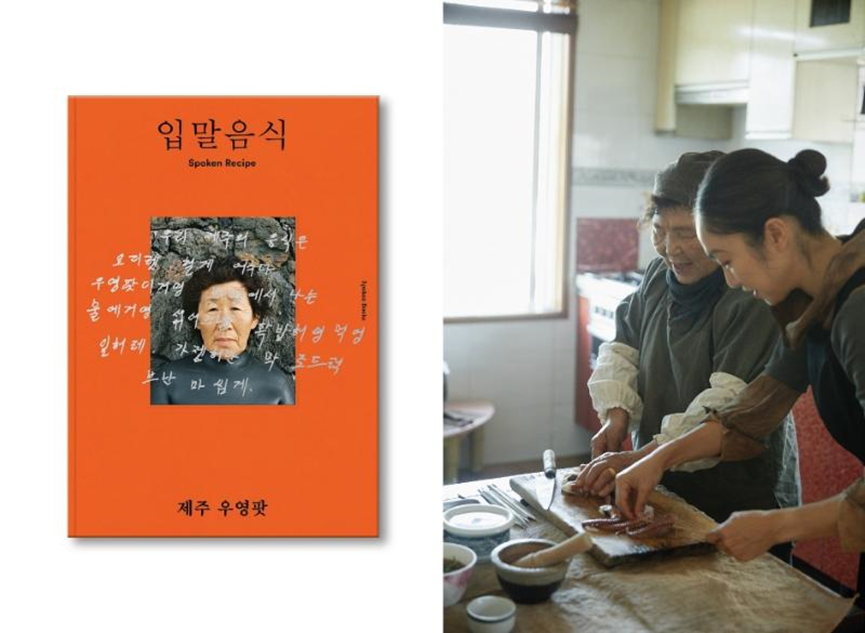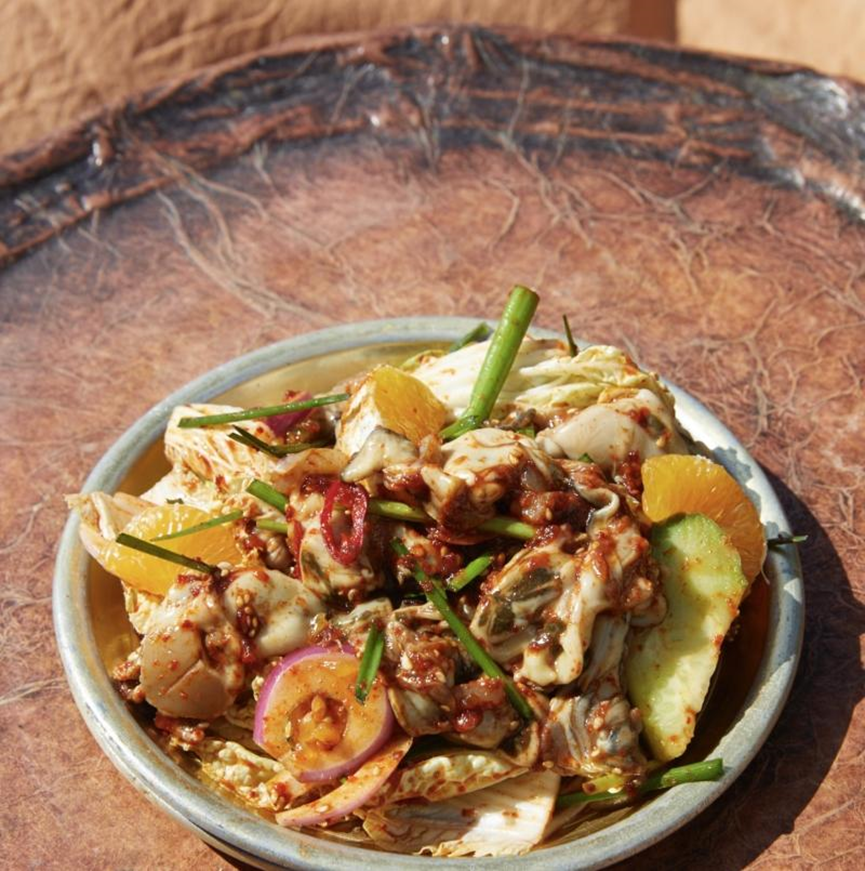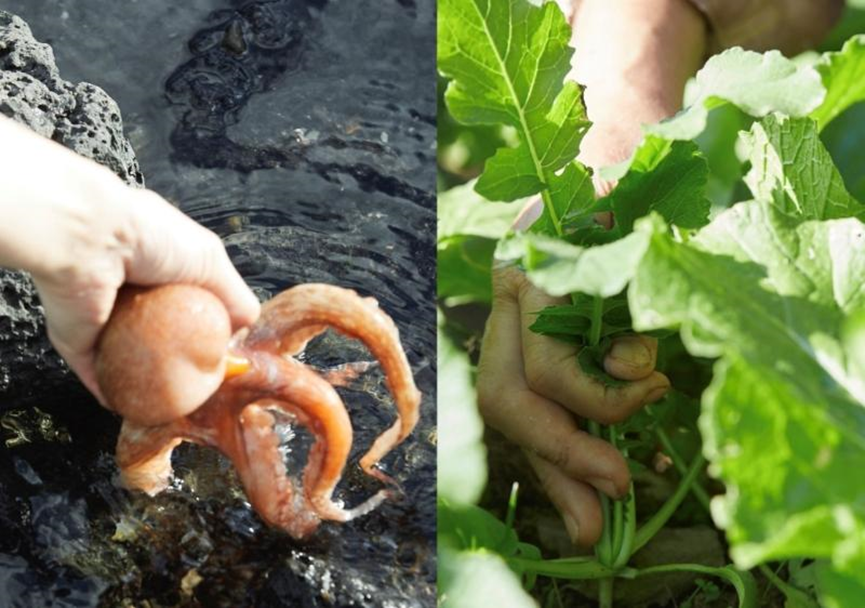- 한국어
- English
- 日本語
- 中文
- العربية
- Español
- Français
- Deutsch
- Pусский
- Tiếng Việt
- Indonesian
By Honorary Reporter Foteini Chatzoudi from Greece
Photos = Spoken Company
This year's list of Asia’s 50 Best Restaurants on March 26 was announced at the Four Seasons Hotel in Seoul. Speaking at the event was Ha Mi-hyun, an author and founder of Spoken Company who conveys stories through flavors, sharing her insights on the significance of fermented food.
She documents unfamiliar recipes from rural communities including those of farming and fisheries. Her company has recorded and studied these culinary traditions to not only form a bridge between the past and future, but also promote connections between Korea and the world.
The following are excerpts from an email interview with Ha from April 1-15.

On the left is a copy of the book Spoken Recipe and on the right is Ha Mi-hyun (right) preparing food.
How did you start documenting recipes from rural communities?
My hometown is Busan, where diverse cuisines blend like waves at the harbor. Accustomed to this blend from an early age, I assumed life elsewhere was similar. But after I discovered Busan's uniqueness while studying in Seoul and abroad, I grew more interested in exploring Korean food and identity.
Through extensive travel to 84 regions and 230 villages since 2014, I engaged with 2,300 locals and recorded 412 uncharted spoken recipes from rural Korea. Traditions evolve but stay relevant in present day. Ultimately, I aim to convey through the Spoken Recipe series that tradition is a living entity that persists in everyday life.

Tangerine kimchi from Jeju Island
How many variations of kimchi does the country have?
Kimchi's diversity in Korea is vast, with each household and region employing distinct techniques based on ingredients, seasons and preferences. I've documented over 100 types during my journeys including those of seafood, meat and vegetables and those made with plant parts. For instance, a farmer on Jeju Island made tangerine kimchi using fresh tangerines and seafood.
What fascinating discovery or insight have you gained in your research?
I conducted field research on potato dishes in Gangwon-do Province and Peru, where I visited a kitchen of the indigenous Quechua people and was served a hearty chicken soup with potatoes. This experience evoked memories of samgyetang (ginseng chicken soup).

On the left is someone catching an octopus by hand to use in food while on the right is a farmer harvesting crops at a garden.
What intrigues you about rural Korean cuisine?
When started exploring Korean cuisine, I initially focused on royal cuisine. I quickly realized that this style felt artificial to me. Royal cuisine often involves extensive preparation requiring many hands, with women typically bearing the brunt of the workload.
Additionally, I wasn't inclined to pursue formal education at a culinary school or academy. Instead, I chose to learn directly from farmers and rural communities, seeking recipes and ingredients often overlooked in textbooks and traditional cooking curricula. Coming from a family of farmers, I found a deep resonance in the insights I gained during my research, particularly in practices like utilizing seasonal ingredients. I realized that within the seemingly ordinary lies the extraordinary.
How do rural, temple and urban cuisines differ?
Rural cooking techniques are straightforward and homely, driven by love rather than formality. They have a wide array of variations influenced more by personal preferences and regional traits than strict adherence to recipes.
Temple cuisine places great emphasis on harmony between nature and humanity, as well as the unity of mind and body. It elevates food to a sacred offering through prayer, with practitioners viewing themselves as devout followers.
Urban cuisine prioritizes affordability and practicality, reflecting traditional cooking methods adapted to contemporary tastes. It leans toward simple and easily prepared dishes, though their vibrant appearance and addictive flavors are also enticing.
What are your goals in the culinary world?
My objective is to create a link between the past and future, uniting Korea with the world through orally transmitted foods and ingredients. The Spoken Recipe series collects and showcases all that is flavorful and stylish even by today's standards.
Through my company, I hope to continue finding and collecting foods and having their stories treated as antiques to showcase them in today’s dining and daily life, as well as maintaining Korean taste and style.
msjeon22@korea.kr
*This article is written by a Korea.net Honorary Reporter. Our group of Honorary Reporters are from all around the world, and they share with Korea.net their love and passion for all things Korean.